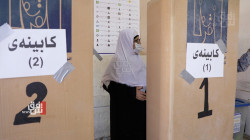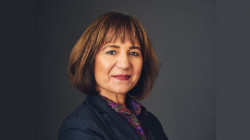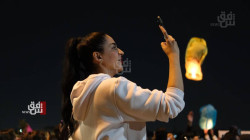When marriage in Iraq turns into mirage: suitors explore their chances abroad

Shafaq News / Getting married in Iraq has become a dream for would-be grooms plagued by a lean purse. Beholden to an out-of-reach dowry, young Iraqi men have to cope with the high living costs of the country or the "high maintenance" costs of the Iraqi woman as well. And here pops up the remedy for this dilemma: marrying a non-Iraqi woman!
Iraqi women, on the other side, present a solid argument for their case: in an ultraconservative community like Iraq, a failed marriage can crash a woman to its dooms; and considering the impact of social media, the high prevalence of extramarital affairs, and soaring divorce rates, a hefty dowry can be the girl's only guarantee.
Experts believe, however, that an astronomical dowry may not necessarily be able to hold a marriage together; bidding on tolerance, respect, trust, and understanding has proven to be a better strategy.
Due to adultery through social media sites and the influence of celebrities and bloggers on such platforms, some Iraqi women demand hefty marriage dowries to "secure their rights in the future". However, experts concurred that such a step will not secure the marriage connection as much as harmony, respect, trust, and mutual understanding between spouses.
Preference for non-Iraqi women
Mohammed al-Asadi, a citizen from Karbala governorate, said that "most young people are unemployed, and those who work in the private sector have a daily wage of no more than 25,000 dinars, which is barely enough to fulfill their daily expenses."
"A young man who wants to be married faces impossible conditions since he is required to pay a dowry of 25 million dinars upfront and the same amount if the marriage ends, which is so difficult, and therefore they turn to marry non-Iraqi women."
"Iraqi youth started heading to Arab nations like Syria and Lebanon, where economic crisis forces families to lower the dowries for their daughters. Currently, it is less than $2,000, and they do not have unreasonable demands like Iraqi women "said al-Asadi.
"After a short period of marriage, Iraqi women start with endless requests, including going out to restaurants frequently, or wanting to travel, buying clothes and makeup almost daily, etc., while Iraqi young men, who are paid 25,000 dinars per month, cannot fulfill all these requests, so they resort to non-Iraqi women who, on the contrary, understand the situation and help their husbands."
Beauty is a relative criterion
Social researcher Shahlaa Hafez, for her part, thinks that "the demand of young people to marry non-Iraqis is due to several reasons, including that the dowry of Syrian or Lebanese women who are currently in Iraq, does not exceed $4,000, and even foreign women, in general, have fewer demands than young Iraqi women."
"Since beauty is relative, some young men think Arab or foreign women are more attractive than women from their own communities. Moreover, the greatest difficulty for a young Iraqi guy is that his wife should visit her family at least once every week, while an Arab or foreign wife does not."
A chance to get rich
On the other hand, Ali Karim, a citizen from Karbala, said that "many Iraqi women exaggerate the value of their dowries. They also ask for large quantities of gold, and with the current rise in prices and the lack of job opportunities, it has become more difficult to marry than in previous years."
He added that "some women consider marriage a business project and an opportunity to get rich, as they greedily demand interstellar dowries, and then start problems with their husbands to take that money."
He explained that he proposed to a woman a while ago but could not provide what she asked for: nine million dinars worth of gold received in cash.
Women's fears
On the other hand, a woman from Baghdad believes that "asking for a hefty dowry is normal in light of the contemporary openness, as social media has raised anxieties among women about adultery, and young men have relationships with more than one woman while being engaged or even married."
She disclosed that she requested a dowry of 150 million dinars in advance and the same amount in the event of divorce to ensure her rights, noting that "if the man is serious about marriage, he will not hesitate to agree to the amount of dowry."
Another woman from Diwaniyah governorate spoke about her marriage. She said that when her coworker proposed to her, she asked for a dowry of 75 million dinars upfront and the same amount if the marriage ends, as well as the registration of a house in her name, "all to ensure my rights in case he changes in the future," adding that "he agreed to the dowry and we are now married."
Dr. Farah al-Quraishi, a professor at the University of Baghdad and a researcher in educational, psychological, and social sciences, attributed the rise in dowries to "the escalation of cases of separation and family disintegration, and although dowries do not value women, they are a guarantee of rights legitimized by the Islamic religion."
"In the past, the dowry was the man's morals, reputation, status, and kindness. However, today, some women place more emphasis on material possessions and outward appearances than on internal content because they mistakenly believe that money is what strengthens and safeguards marriages. However, this is untrue because marriages are based on the partner with whom harmony, respect, trust, and understanding occur."
Being affected by others is another major aspect contributing to the high cost of dowries. The biggest contributor is, according to al-Quraishi, "fascination with social media sites and the extravagant weddings publicized in them, as well as being affected by celebrities and bloggers, what they wear, their makeup, their cars, etc."
She emphasized, "Women in previous generations were content and patient, but today's women sometimes demand things right away, especially in light of social media sites' allure. They now think that the value of their dowries determines their worth. This mindset must be changed, especially among parents, who should instead try to find their daughters a spouse suited for marriage's permanency because, while money comes and goes, marriage is not a daily occurrence."
Women's right
"A woman has the right to decide the amount of dowry she feels appropriate for her, but the excessive dowry is unlike what Islam called for in this regard, which is to facilitate marriage for young people," explained Islamic researcher Wameedh al-Gharifi.
"Work to acquire the dowry and look for a decent wife with good intentions," he urged young people, "and women should cooperate in the amount of their dowry."
Nour al-Saadi, an Islamic scholar, stated that "in general, a woman should have the equivalent dowry, which is to say, that it should be comparable to her peers, while she is entitled to an expensive dowry in specific circumstances, such as in the event of prior experiences, a particular fear, or keenness on a particular situation."
Al-Saadi clarified, "The dowry is currently divided into two halves, one given up front and the other paid in the event of divorce. If the marriage is terminated without being fully consummated, the woman is legally entitled to half of the dowry; otherwise, she is entitled to the full amount. However, in Islam, it is a single payment. Thus women are fully deserving of it."





